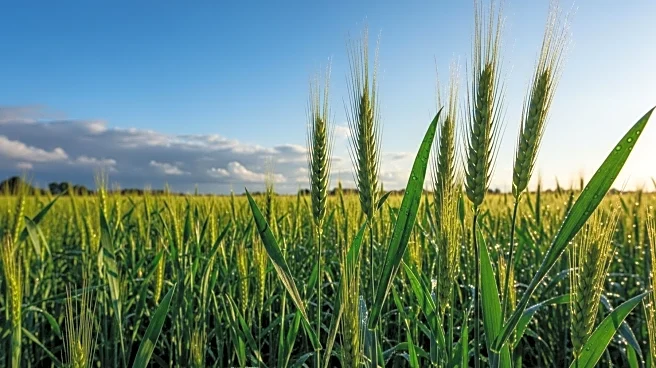What's Happening?
Recent rainfall in Argentina's wheat-growing regions has improved crop conditions, according to the Buenos Aires Grains Exchange. However, 27% of the planted area is experiencing waterlogging, leading to fungal disease outbreaks. Despite these challenges, most of the crop remains in normal-to-excellent condition, with 27% reaching its rapid growth phase. The rains are seen as beneficial for the crop's reproductive stages, despite concerns over excessive moisture.
Why It's Important?
Argentina is a key global wheat exporter, and improved crop conditions can enhance its export potential, benefiting the economy. However, waterlogging and disease outbreaks pose risks to crop yields and quality. The situation highlights the delicate balance between beneficial rainfall and excessive moisture, which can impact agricultural productivity and international trade.
What's Next?
Farmers and agricultural authorities will need to monitor the situation closely to manage waterlogging and disease risks. Strategies to mitigate these challenges will be crucial in ensuring a successful harvest and maintaining Argentina's position in the global wheat market. Continued rainfall may further influence crop conditions and require adaptive measures.










